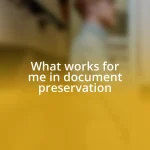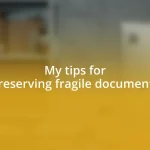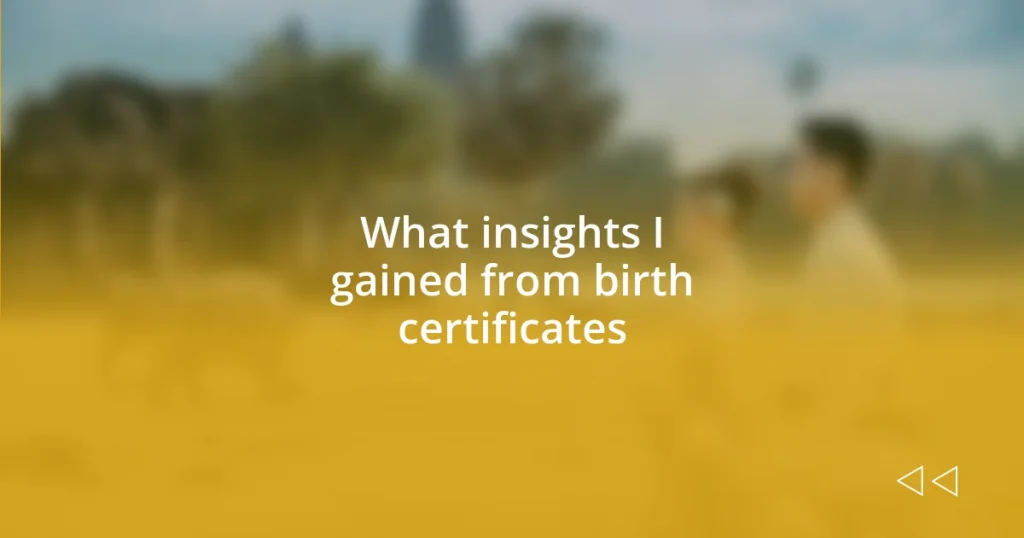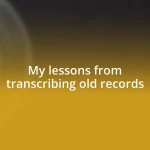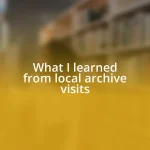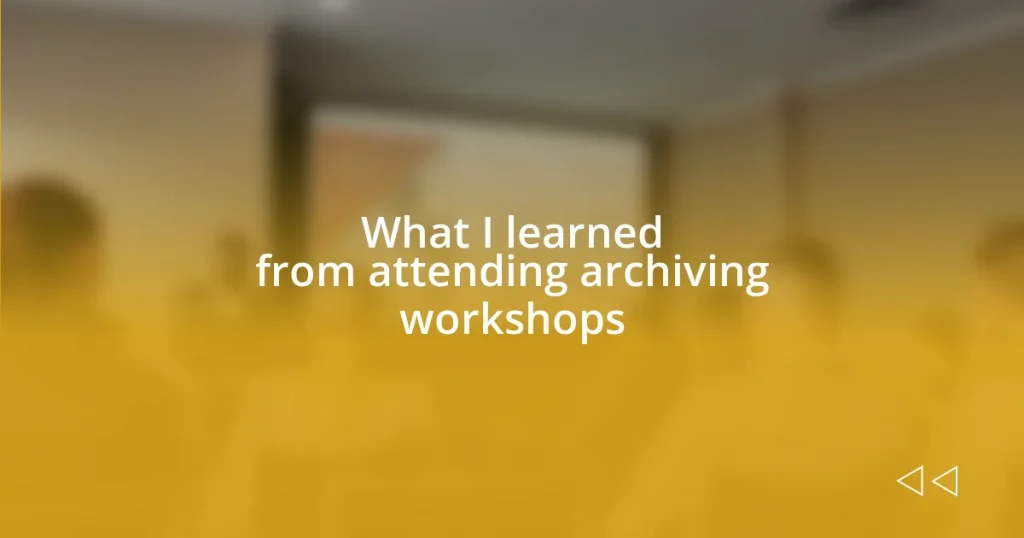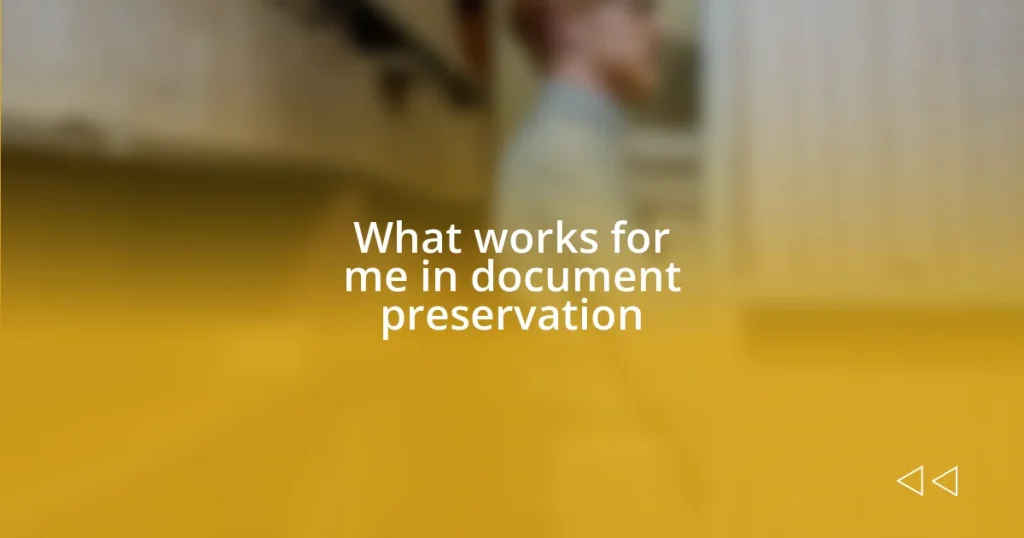Key takeaways:
- Birth certificates signify personal identity and heritage, playing crucial roles in legal rights and societal belonging.
- Accurate information on birth certificates is essential for identity verification, access to services, and accurate demographic data.
- Analyzing birth certificates can deepen personal understanding of family history, health, and roots, revealing rich narratives beyond mere data.
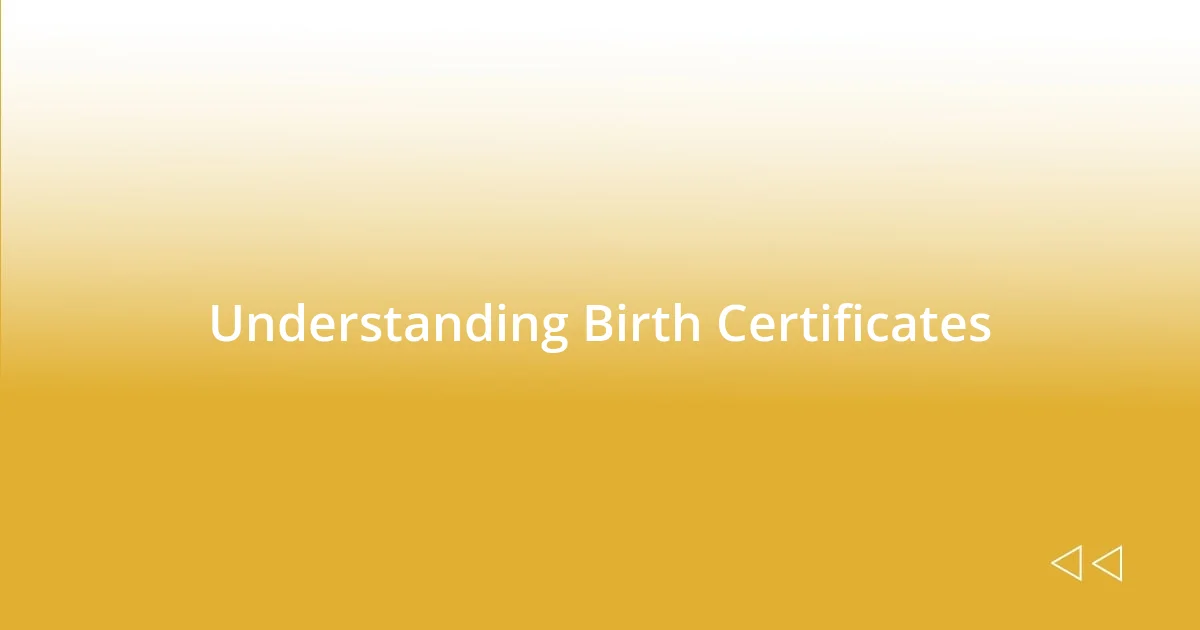
Understanding Birth Certificates
Birth certificates may seem like just another piece of paperwork, but to me, they symbolize a person’s first acknowledgment in the world. I remember the day I dug through my family’s old documents and stumbled upon my own birth certificate; it was like unearthing a treasure. That simple document wasn’t just ink on paper; it held the story of my arrival, a snapshot of my identity.
I often ponder why we attach such importance to this seemingly simple record. Isn’t it fascinating that it serves multiple roles, from proving our age to establishing our rights? For many, like me, it’s the first individual marker of existence, creating a tangible link to our heritage and family history.
Understanding the nuances of birth certificates can be quite enlightening. I was surprised to learn that some states have different formats, which can even reflect cultural or historical influences. This makes me wonder – how much do our birth certificates really shape our lives, contributing to our sense of belonging and identity? They’re not just bureaucratic documents; they encapsulate the essence of who we are and where we come from.
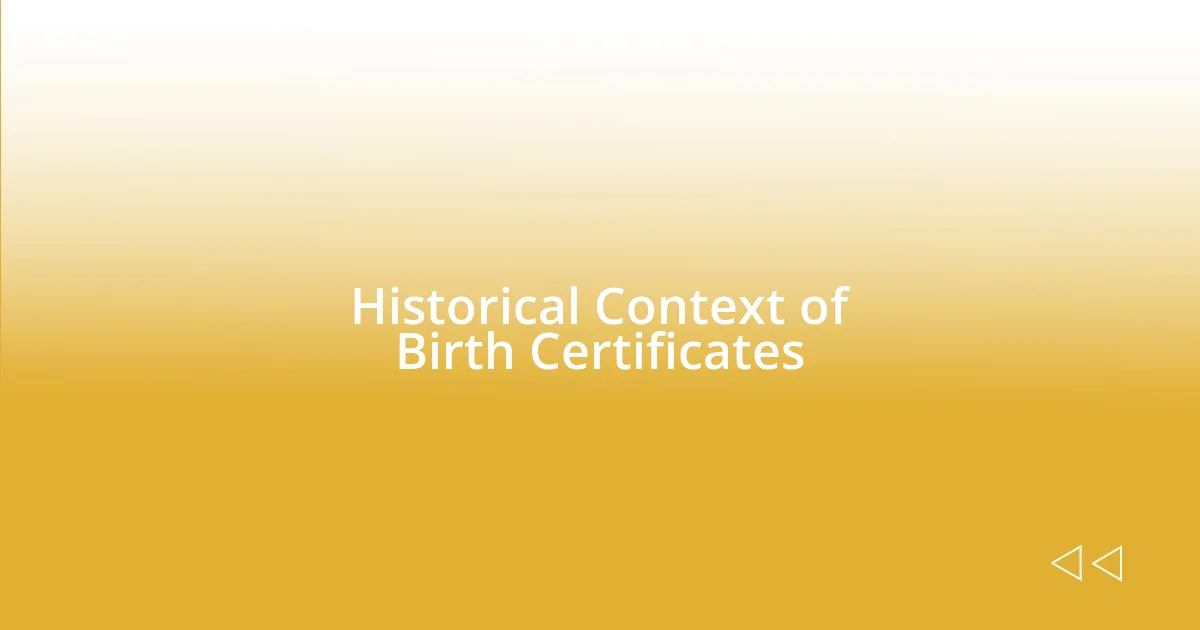
Historical Context of Birth Certificates
The historical context of birth certificates reveals much about societal evolution. These documents have roots that trace back to ancient civilizations, where the need to record births, deaths, and marriages became essential for administrative purposes. I remember flipping through dusty history books and discovering that in some cultures, babies were not deemed fully alive until their births were recorded, which added a deeper gravity to that little piece of paper.
- In ancient Rome, birth registration was tied to citizenship, impacting legal rights and inheritance.
- Medieval European records were often maintained by the Church, linking birth certificates to religious significance.
- In the 19th century, civil registration systems started to emerge, emphasizing the government’s role in capturing personal identity.
This rich tapestry of history makes me reflect on how our contemporary birth certificates are more than mere documents; they’re a continuation of a narrative that has shaped personal and societal identities for centuries. It’s almost poetic to think about the legacy we carry in something so simple yet profound.
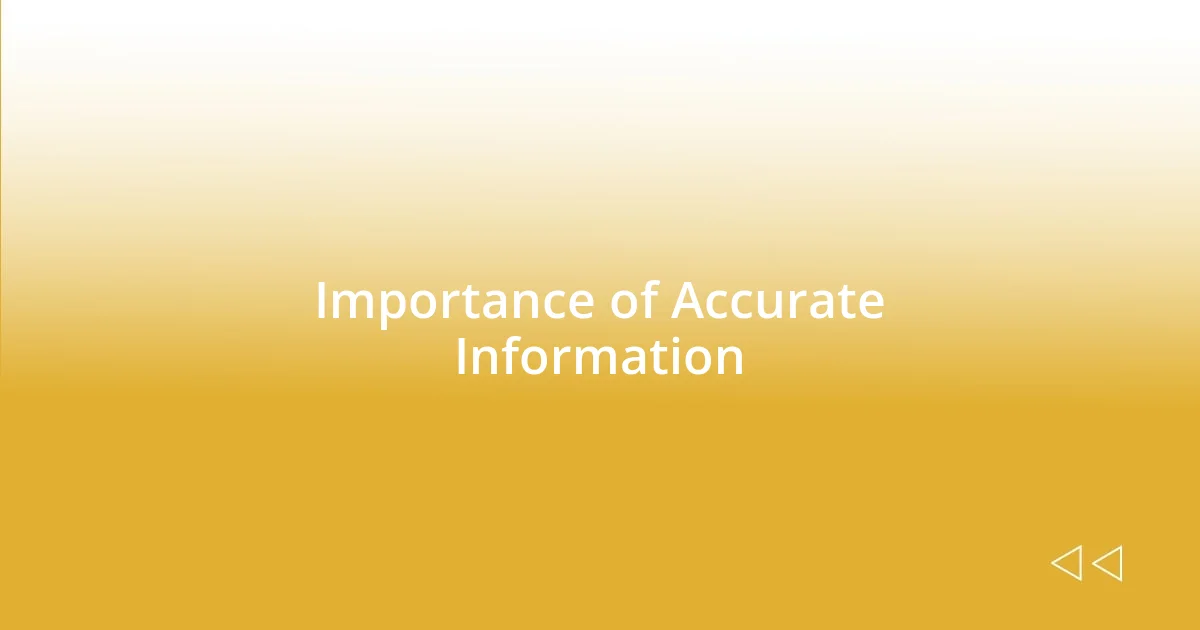
Importance of Accurate Information
Accurate information on birth certificates is vital for many reasons, and I can personally attest to the consequences of discrepancies. I once accompanied a friend to apply for a passport, only to find that her birth certificate had a typo in her name. This seemingly small mistake led to a frustrating delay and a barrage of paperwork. It made me realize that accuracy in these documents is not just a formality; it has real consequences.
Additionally, I think about how incorrect information can affect an individual’s identity and rights. I remember attending a workshop where a speaker shared a story about a person denied benefits due to mismatched names on official documents. It’s amazing how one mistake can ripple through various aspects of life, impacting access to education, healthcare, and more. The importance of accuracy cannot be overstated; it’s foundational to our legal identity.
When I reflect on my own experiences, I recognize how this issue connects to the bigger picture of personal and community identity. Having accurate information not only empowers individuals, but also helps societies function smoothly. For example, consider how census data relies on correct birth records to allocate resources and services effectively. This relationship highlights the profound impact of accuracy on both personal and communal well-being.
| Aspect | Importance of Accuracy |
|---|---|
| Identity Verification | Ensures legal and personal identity is upheld |
| Access to Services | Facilitates access to healthcare, education, and benefits |
| Statistical Data | Supports accurate census and demographic analysis |
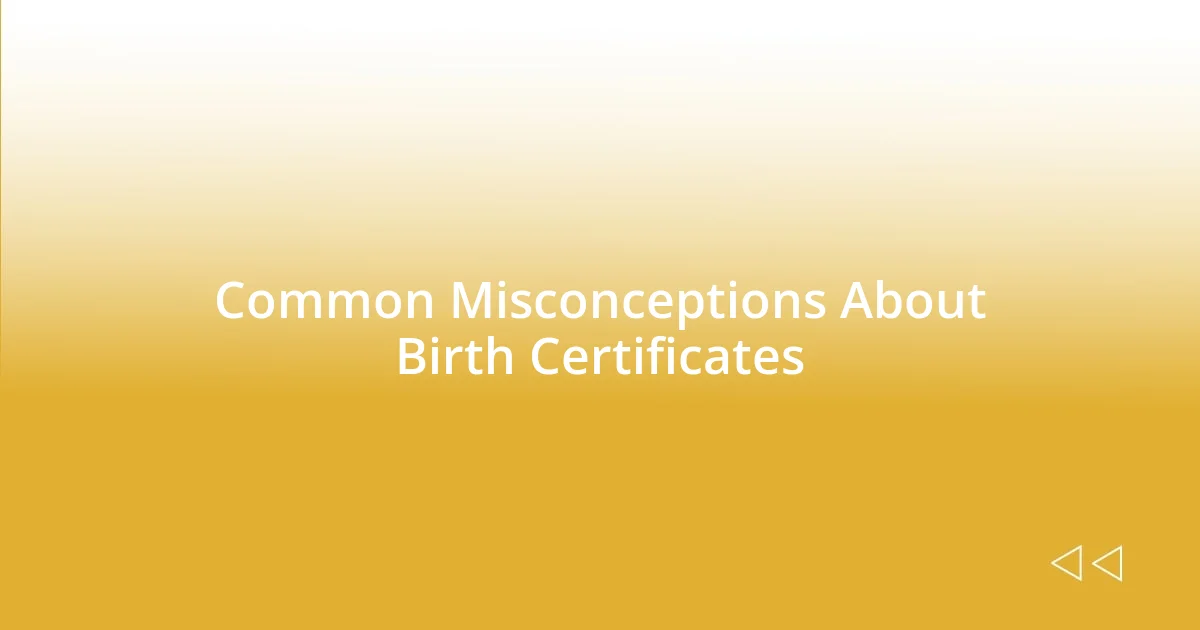
Common Misconceptions About Birth Certificates
Many people think that a birth certificate is just a formality, but I’ve discovered it holds more significance than that. For instance, I once met someone who believed that their birth certificate merely confirmed their name and birthdate. However, when that person applied for a job, they quickly found out that the document was essential for verification processes. It underscored for me that a birth certificate serves as a crucial link to one’s identity, not just a piece of paper.
Another common misconception is that the details on a birth certificate are set in stone once issued. I encountered this misconception when a relative attempted to change the spelling of their name years after receiving their certificate. Surprisingly, the process required extensive legal steps and could vary by state. This experience drove home to me that changes are possible, but they come with their own challenges and requirements.
Lastly, some believe that birth certificates are only necessary for legal matters, but I think they play a role in personal history as well. I remember sifting through family documents for a genealogical project, and discovering that birth certificates were essential to trace my ancestry. They revealed not only names and dates but also stories behind those lives, allowing me to connect with my family’s past. This made me realize just how rich our personal narratives are when backed by such documents. So, have you reflected on what your own birth certificate means in the broader context of your life?
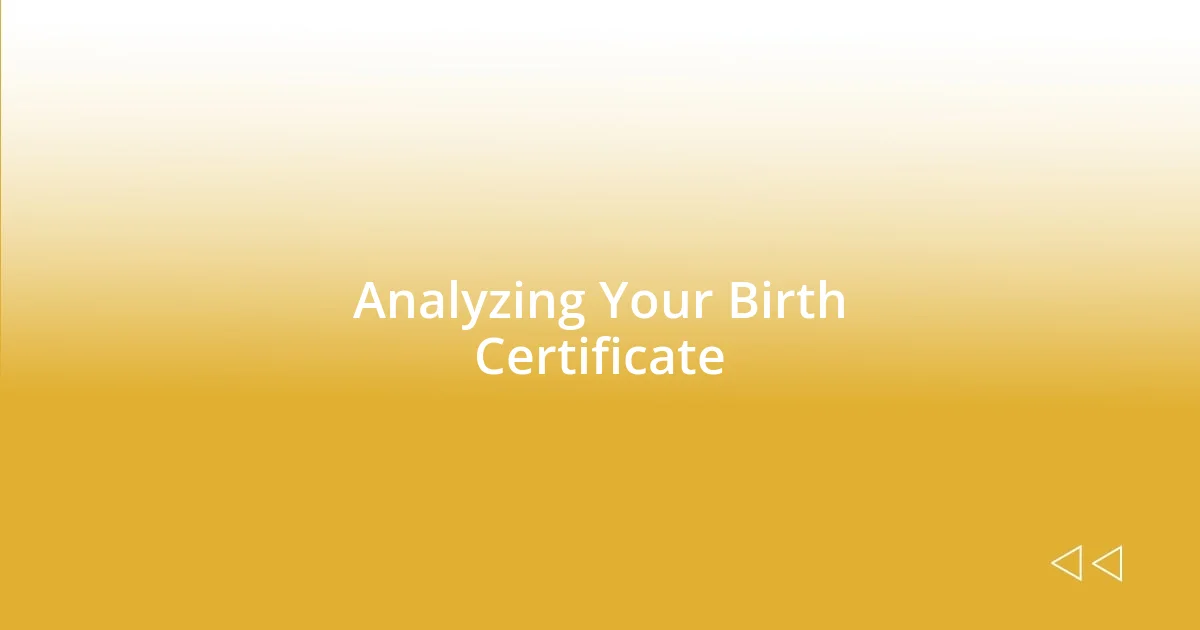
Analyzing Your Birth Certificate
Analyzing your birth certificate can be quite illuminating. I remember the first time I pulled out my own document and really scrutinized it. I noticed details I had never considered before, like the names of my parents and the place of my birth. It struck me that this piece of paper contained not just facts, but also pieces of my history and identity—all intertwined. Have you ever thought about what each element on your certificate means to your personal narrative?
One particular aspect that caught my attention was the designation of my place of birth. I recall discussing it with a friend who was born in a different country. This sparked a conversation about how birthplace often influences our identity. It made me realize that where we come from shapes our experiences and perspectives in ways we might overlook. Have you considered how your birthplace has impacted your own journey?
As I delved deeper into the sections of my birth certificate, I encountered the term “paternity.” It was initially a bit confusing, but understanding its significance was eye-opening. It’s a reminder of the familial ties that define our upbringing. I wondered how many people have looked at their certificates without truly grappling with the implications of this information. It’s fascinating how much insight one document can provide into our roots. What surprises might you find when you take a closer look at yours?
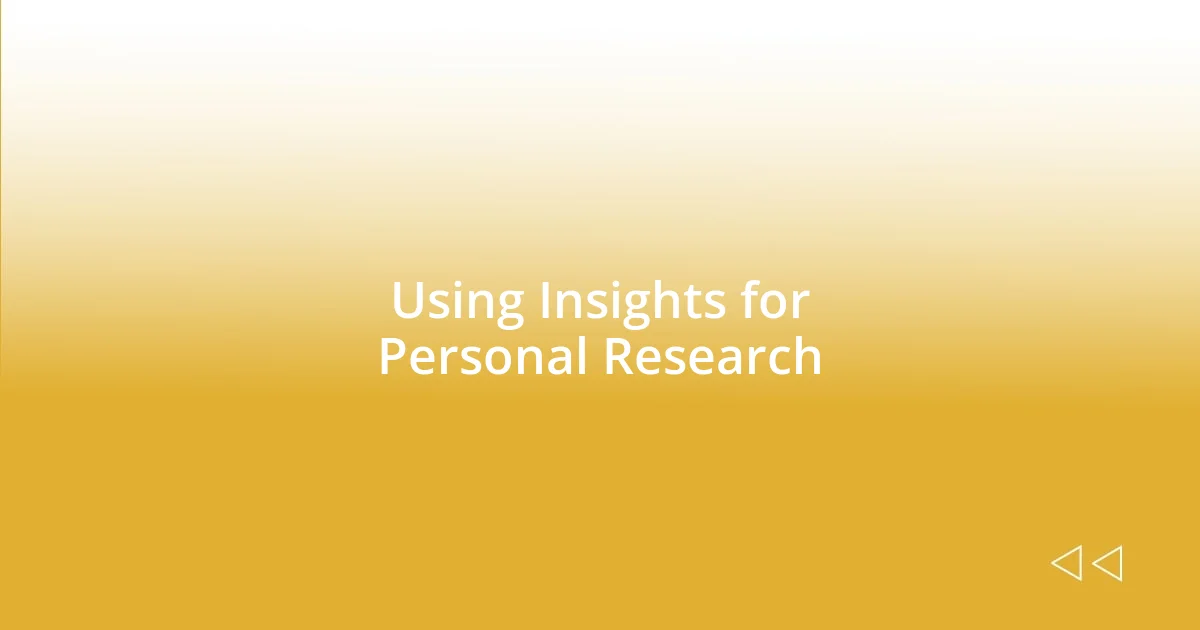
Using Insights for Personal Research
Using insights from your birth certificate can be a powerful tool for personal research, especially when exploring your family history. I remember the moment I decided to trace my lineage. As I matched names on my birth certificate with relatives on a genealogy website, I felt a thrilling connection to my past. It was like piecing together a puzzle that unveiled not just names, but stories, struggles, and triumphs that have shaped who I am today. Have you ever felt that electric sense of discovery when connecting the dots in your own family tree?
There’s a certain weight to the information found within that document that I’ve found can deepen one’s understanding of heritage. For instance, learning the origins of my family name made me curious about my ancestors’ lives and the dreams they might have had. As I researched more, I stumbled upon my great-grandfather’s immigration story. The courage it took to move across oceans with little more than hope left me in awe. How much of your family’s legacy lies hidden in the details of your own birth certificate?
When conducting personal research using your birth certificate, it’s important to think beyond mere names and dates. I found this out firsthand when I began looking into health histories, a crucial element linked to the information on my certificate. Realizing that hereditary conditions could impact my health sparked a desire to reach out to relatives and gather more information. This not only strengthened my understanding of my family’s genetic background but also helped me take proactive steps towards my own well-being. What insights could you gain about your health by revisiting this often-overlooked document?

